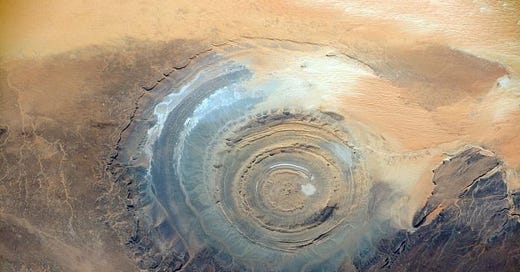This newsletter will be on a brief hiatus because I’ll be in Mauritania for the next two weeks, presumably without any Internet access at all.
I’m curious to know how well-served I’ve been by the media’s coverage of events in the Sahel. I’ve generally found, wherever I’ve gone, that politically, things are not at all what I expected, given what I’ve read in the news—although everywhere in the world looks exactly the way it does on television. (This is an iron law of travel.)
The headlines from Mauritania today certainly don’t make the place sound like a barrel of laughs:
Mauritania: Prison Terms for Men Celebrating Birthday
Abolition Institute Honors People Fighting Slavery In Mauritania
19 Killed in Attack on Mali Army Base Near Mauritania Border
UNICEF Mauritania Humanitarian Situation Report
10 Men Jailed in Mauritania Over 'Gay Marriage' Video, and Could Face Death Sentences
On the other hand, there is almost no coverage of the country beyond stories like this, and I suspect this is because there are no journalists there. (This may be because Mauritania has no press freedom.) My brother tells me the security situation is in fact excellent, and that the Adrar and Tagant regions, where we’ll be trekking, are beautiful beyond words. Apparently, they look like this:

It’s not my first trip to the region. I was invited several years ago to Western Sahara on a press junket organized by the Moroccan government. I wouldn’t have gone had I only paid attention to the lurid travel advisories. It was fascinating and spectacularly beautiful—and it was perfectly safe and peaceful. I was glad to have seen it for myself. There was no relationship between what I saw and what I would have imagined had I only read the news about the region.
I never felt comfortable writing about it, though, because I’d been hosted by the Moroccan government. We only saw what they wanted us to see, and they kept us busy enough that we couldn’t learn much independently. I wasn’t much interested in presenting only the Moroccan side of the story, although I did find their side of the story compelling. They arranged for us to meet everyone in Western Sahara who supported Morocco’s claims, and the people to whom we spoke were clearly sincere. They didn’t arrange for us to meet anyone who didn’t support their claims, however, and it seemed absurd to write about the situation without speaking to any of those people—who do, obviously, exist.
I wanted to go back on my own and learn more about the situation, but I never managed to find the funding for it. I always felt badly about that. It’s an interesting story; it is severely under-covered in the media, and the Moroccan government was exceedingly gracious to me. I would have been delighted to write about their side of the story if I’d been able to find a way to hear more from the other side.
This time I’ll be traveling on my own dime (or my brother’s, anyway), so I’ll be able to see whatever I think I ought to see. I don’t know what I’ll see—or ought to see. I leave with very few preconceptions.
I’ll let you know what I find when I get back.





Looking forward to reading what you write on it, Claire. Have a wonderful trip
Have a nice trip and come back feeling better. :)